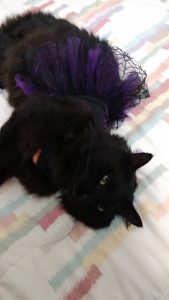At the “Ithaca is for Coffee Lovers” event, the GRF’s asked us each to share an interesting or funny coffee anecdote for our lives. I didn’t end up sharing one, as the conversation got side tracked by a very involved discussion of Harry Potter, so I thought, in fairness to those who did open up, I would share my one coffee anecdote:
I’m not a coffee person. My mother didn’t allow me to drink it growing up. She always said it would stunt my growth (with an average height of five foot even, the Heon women do not have many inches to spare).
I started going to coffee shops only when I started interviewing for colleges, so my experience of Starbucks is tied up with a lot of trauma. I’m going to take a minute here for an unrelated rant about college interviews. Namely, that they are pointless and accomplish nothing. I should mention here that I was waitlisted or rejected by every college that granted me an in-person interview. I probably only made it to Cornell because their interview was by phone, though I somehow managed to direct the conversation to how, specifically, I would build the space elevator (ummm….carbon fiber?? Maybe?)
This particular interview was for Yale. I arrived at our local Starbucks 10 minutes early, as I believed etiquette required, thinking my interviewer would be there too. I looked around for someone of the appropriate age who looked “Yaley”. I finally approached a woman I believed to be my interviewer. After some mumbled introductions, which led me to believe that I had found who I was looking for, we exchanged pleasantries. I thought the interview was going pretty well, until she pulled out and iPad and said something to the effect of “So, about the wedding blog…” At which point it became very apparent that this was not a Yale interview, and I had somehow convinced the woman sitting across from me (apparently also named Elizabeth) that I was the photographer for her wedding blog.
Long story short, I spent my real Yale interview hiding in a corner booth from wedding blog lady, who hopefully did find her photographer.


